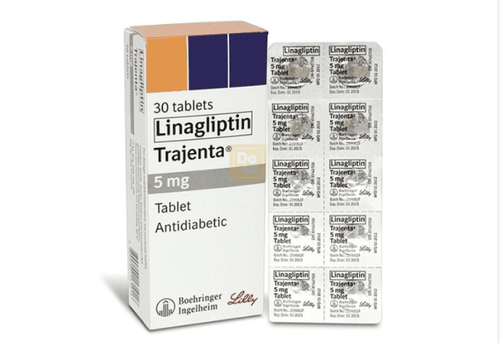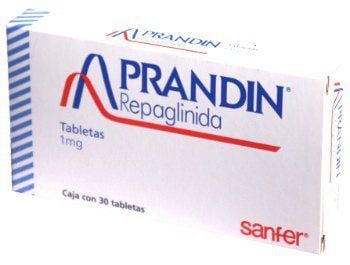This is an automatically translated article.
Mekoaryl is a drug commonly used in the treatment of non-insulin dependent diabetes in adults when blood glucose cannot be controlled with usual diet or exercise. The use of the drug should be strictly according to the instructions of a specialist to bring the best effect.
1. What does Mekoaryl do?
Mekoaryl medicine contains the main ingredient Glimepiride. This is a sulfonamide used orally, belonging to the group of sulfonylureas with hypoglycaemic effects. Glimepiride is effective in stimulating the release of insulin from the beta cells of the islets of Langerhans of the pancreas. In addition, this active ingredient also works to improve the sensitivity of peripheral tissues to insulin as well as support to reduce insulin absorption in the liver.
2. Indications and contraindications to the drug Mekoaryl
2.1. Indications Mekoaryl is an adult drug, indicated for use in patients with non-insulin dependent type 2 diabetes. In order for the drug to be most effective in controlling blood sugar, patients need to pay attention to combine it with a daily diet and exercise.
2.2. Contraindications In addition to those who should use the drug, Mekoaryl is contraindicated in the following cases:
Patients with hypersensitivity to glimepiride, sulfonylurea or sulphonamides or any other ingredient of the drug. Patients with insulin-dependent diabetes mellitus, coma, and diabetic acidosis. People with severe liver and kidney failure, children under 18 years old, pregnant and lactating women.
3. Dosage and usage
Dosage of Mekoaryl depends on the patient's ability to respond and tolerate the drug. However, you can refer to the dosage of Mekoaryl below:
Initial dose for people who have not been treated before: Patients usually use it at a dose of 1-2 mg / day. For people who are debilitated, malnourished or elderly, have liver or kidney failure, there is a risk of hypoglycemia, use only 1 mg / day. Dosage for patients who have been treated with other antidiabetic drugs: Use the drug from 1 to 2 mg / day, up to a maximum of 2 mg / day. Maintenance dose: Use Mekoaryl at a dose of 1 - 4 mg/day (For those already taking glimepiride use a dose of 1 mg/day). In the event that the desired blood glucose level is not reached after 1-2 weeks of treatment, the dose can be increased to 2mg/day. However, patients need to pay attention to gradually increase the dose, each time increase no more than 2 mg / day, at intervals of 1-2 weeks and only use the drug up to 8 mg / day. Mekoaryl is taken orally with a frequency of 1 time / day at breakfast or the first main meal of the day.
4. Side effects when using Mekoaryl
During the use of Mekoaryl, users may experience some side effects such as:
The most common side effect is hypoglycemia. Occasionally, patients may also experience dizziness, lightheadedness, headache. There is a feeling of nausea, vomiting, fullness in the epigastrium, abdominal pain, diarrhea; temporary visual disturbances.
5. Drug interactions
Mekoaryl has the ability to interact with insulin, chloramphenicol, coumarin derivatives, MAOIs, miconazole, phenylbutazone, blocker, so patients should avoid using these two drugs together. Using Mekoaryl with drugs such as acetazolamide, diuretics, barbiturates, phenytoin, glucagons will reduce the effect of glimepiride. Mekoaryl when used with antihistamines H2, clonidine, reserpine, alcohol will have the risk of changing the effect of the drug. The drug may also alter the effect of coumarin anticoagulants.
6. Be careful when using Mekoaryl
Be careful when using Mekoaryl in the following cases:
During the treatment, the patient must strictly follow a reasonable diet and exercise regimen. Elderly people, users of beta-blockers or sympathomimetic drugs, treatment of adrenal insufficiency, liver failure, pituitary insufficiency, especially patients with renal failure should be monitored when taking the drug because it is easy to appear. hypoglycemia. People who are stable on the Mekoaryl regimen may not be able to control their blood glucose levels if they are exposed to stress, trauma, surgery, high fever, or infection. The use of the drug can reduce the patient's flexibility or responsiveness, so extreme caution should be exercised if used in a driver or machine operator. Patients should periodically monitor blood glucose and measure HbA1C every 3-6 months. Because Mekoaryl has the potential to cause fetal toxicity, causing teratogenicity, it is contraindicated for use in pregnant women. Mekoaryl is excreted in breast milk, so it is also contraindicated in nursing women. If medication is required, the patient will have to stop breastfeeding. If the drug overdose, the patient often feels headache, shivering, sweating, fatigue, increased blood pressure, nervousness, chest tightness, arrhythmia... In mild cases, the patient should take it. glucose or white sugar 20-30g mixed in a glass of water and monitor blood glucose until it returns to normal limits. In severe cases, the patient needs to be taken to the hospital for support. Above is some information about Mekoaryl drug that readers can refer to. To use the drug effectively, follow the instructions of a specialist or medical professional.
Follow Vinmec International General Hospital website to get more health, nutrition and beauty information to protect the health of yourself and your loved ones in your family.
Please dial HOTLINE for more information or register for an appointment HERE. Download MyVinmec app to make appointments faster and to manage your bookings easily.













